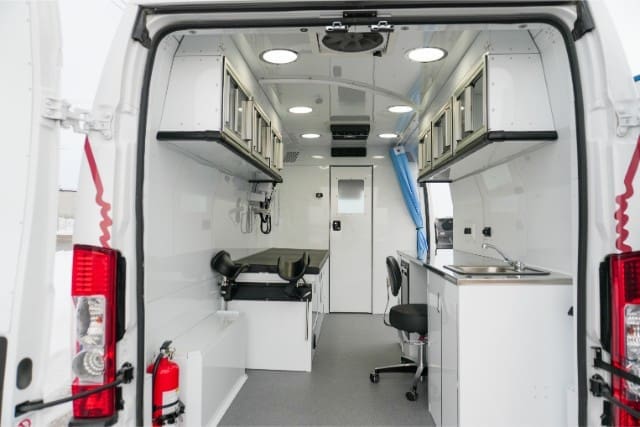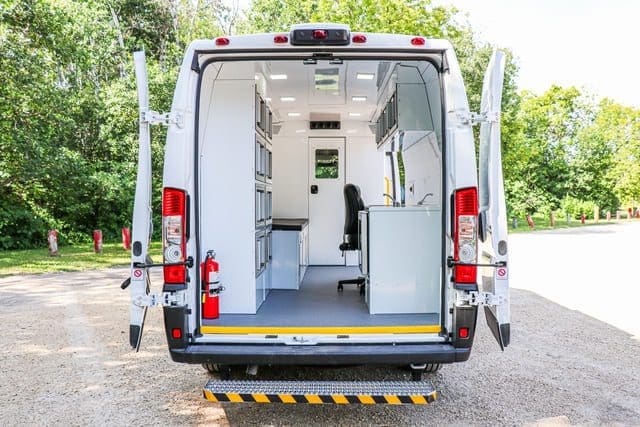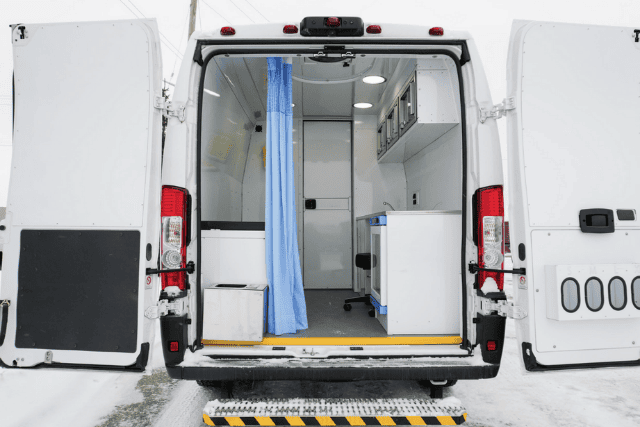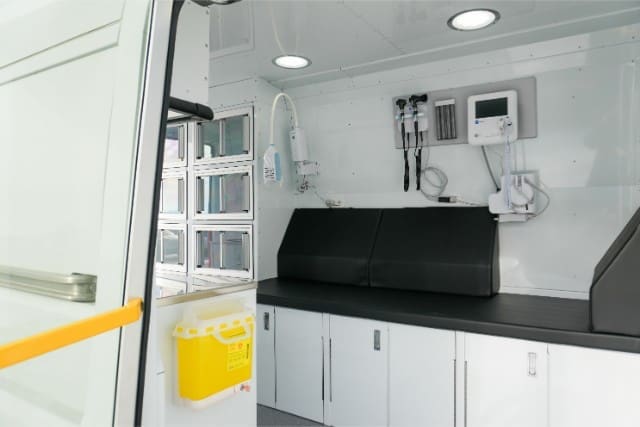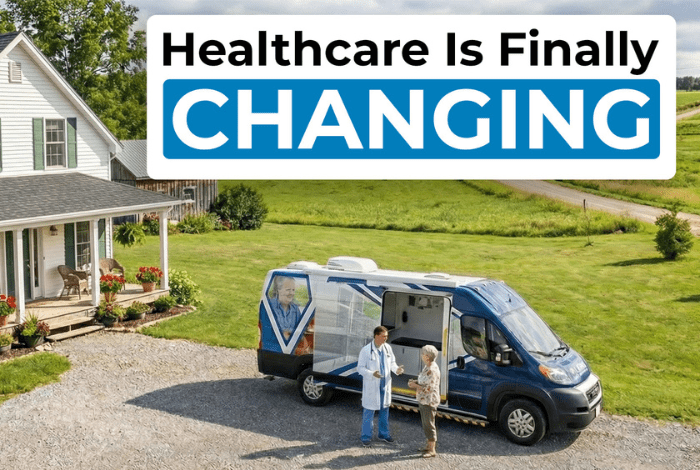Did you know that about 1.8 million people in Pennsylvania live in rural areas, where getting basic healthcare feels out of reach? It’s a daily reality for too many: long drives, weeks of waiting, or giving up altogether. If you’re part of a healthcare organization, you’ve seen it. You’ve heard the frustration. And you know the risks: untreated conditions worsen, costs rise, and lives hang in the balance.
It’s frustrating when you do everything you can, but the system still falls short. It’s easy to feel stuck. But there’s good news: mobile health clinics can help close the gap, bringing care straight to the communities who need it most.
At AVAN Mobility, we’ve spent over 10 years helping organizations like yours and Pacific Clinics across the U.S. break down barriers to healthcare and transportation. With a team that listens first and builds second, we design mobile clinics and mobile medical units that are built to perform and built to last. While we’re proud of what we offer, we also know there are other options out there. We’re here to give you the real facts to help you move forward.
In this article, you’ll learn:
- What the rural healthcare gap looks like in Pennsylvania
- How mobile health clinics can help close it
- The services you can provide in a mobile clinic
What does the rural healthcare gap in Pennsylvania look like?
If you work in rural healthcare in Pennsylvania, you already know the reality: getting to a doctor isn’t easy for many people. In fact, about 3.4 million people, more than a quarter of the state, live in rural areas. That’s a lot of Pennsylvanians who might struggle just to get the care they need.
Here’s the bigger picture of what’s going on:
- Fewer places to go: Some rural counties don’t even have a hospital. Others have just one, and it might be quite far away from where people live.
- Not enough doctors and nurses: Many small towns can’t find enough healthcare workers, so people wait longer or go without care altogether.
- Transportation problems: In rural areas of Pennsylvania, there are no buses or taxis. If patients don’t have a car or gas money, seeing a doctor can feel impossible.
All of this adds up to a serious gap. People miss check-ups, skip treatments, and sometimes end up in the ER when it’s too late. Families worry. Communities hurt.
That’s where mobile health clinics can really make a difference. Instead of waiting for people to find care, a mobile clinic brings care straight to their communities, closing that gap.
Next, let’s take a quick look at what happens when patients avoid healthcare in Pennsylvania.
What happens when people delay getting healthcare in Pennsylvania?
When healthcare feels too far away, too hard to get to, or too expensive, people don’t just wait—they suffer. Putting off care is common, and the risks are huge.
What can happen when people delay getting help?
- Small problems become big ones: A treatable infection can turn into a hospital stay. A sore knee can lead to surgery.
- Chronic illnesses get worse: Without regular check-ups, things like diabetes, high blood pressure, and heart disease spin out of control.
- Mental health struggles grow: People dealing with anxiety, depression, or addiction may go without support for months or years.
- Emergency rooms fill up: Many folks end up using the ER for things that could’ve been handled much earlier and cheaper.
- More lives are at risk: Skipping care doesn’t just hurt individuals. It hurts families, towns, and the whole community.
When you see stats showing that rural Americans are more likely to die from preventable causes than those in cities, it’s heartbreaking—but not surprising.
The good news? Mobile health clinics can change this story. A mobile clinic can meet people where they are—before small problems turn into big emergencies.
Next, let’s dive into how mobile health clinics can fit into the future of rural healthcare in Pennsylvania.
How do mobile health clinics close the rural healthcare gap in Pennsylvania?
Picture a 78-year-old living on a farm in rural Pennsylvania. Severe mobility issues make even stepping outside hard. When chest pains start, getting help isn’t as simple as driving to the nearest hospital two hours away.
Now, picture something better: A mobile health clinic arrives just minutes from their home. Instead of facing long travel and uncertainty, they get checked early, receive the necessary care, and avoid a life-threatening situation. This is the kind of impact organizations can create with a mobile clinic.
Mobile health clinics help close the gap in rural healthcare in Pennsylvania through:
- Reducing travel barriers: Clinics set up directly in the community, cutting out long drives and missed appointments.
- Helping catch health problems early: Screenings and check-ups on-site mean treatment starts before issues grow more serious.
- Offering urgent care during emergencies: Imagine someone with a broken leg and no family nearby. Without transportation, reaching a hospital hours away becomes dangerous. A mobile medical unit can provide immediate help safely.
- Bringing mental health support closer: Access to counseling, addiction services, and regular check-ins becomes part of the community, not a distant option.
- Strengthening trust and relationships: Familiar, consistent care providers build stronger connections and encourage ongoing healthcare use.
Organizations that invest in mobile health clinics bring care, comfort, and critical services into communities that have gone too long without them.
Next, let’s look at what kinds of services a mobile clinic can offer—and how flexible they can be to meet different community needs.
What services can mobile health clinics offer to support rural healthcare in Pennsylvania?
Mobile health clinics give organizations a way to bring important care directly into Pennsylvania communities.
Here are some services your mobile clinic can offer:
Mobile OBGYN care: Some rural areas like Potter County don’t have regular women’s health services. A mobile health clinic brings prenatal and postnatal care closer to families.
Mobile dental care: In places like Cameron County, there are fewer than three dentists for the whole area. A mobile clinic can offer checkups, cleanings, and emergency care.
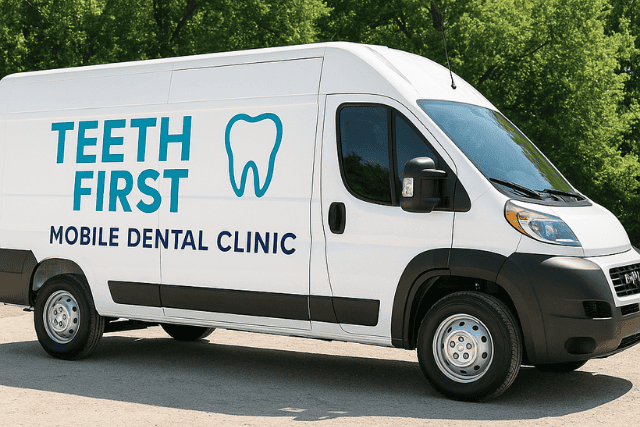
Mobile healthcare and preventive care: Basic checkups, screenings for diabetes, blood pressure checks, and wellness visits keep small problems from growing bigger.

Mobile wound treatment: Seniors and people with diabetes often need wound care. A local mobile medical unit helps them heal faster and stay healthier.
Vaccination programs: Bringing vaccines to schools, workplaces, and community centers makes it easier for everyone to stay protected.
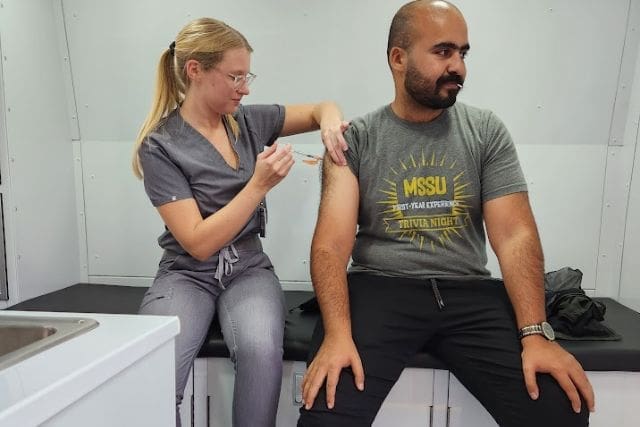
Mobile veterinary services: Farming towns like Tioga County rely on animals. Mobile vet clinics help farmers care for their livestock without driving hours away.
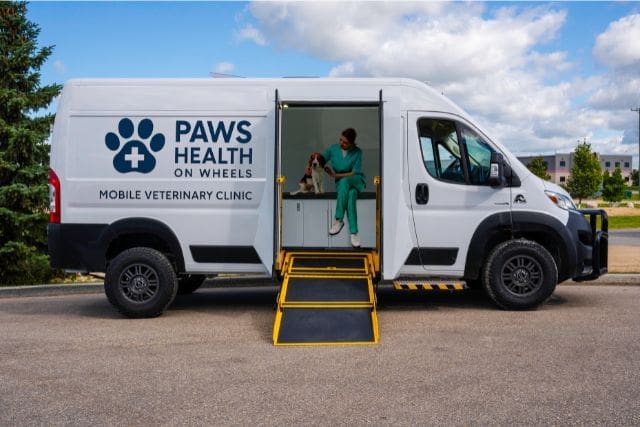
Cancer screening: Early checks for breast, skin, and other types of cancer save lives when care is more accessible.
Mobile IV therapy: Treatments like hydration and antibiotics can happen right in the patient’s town.
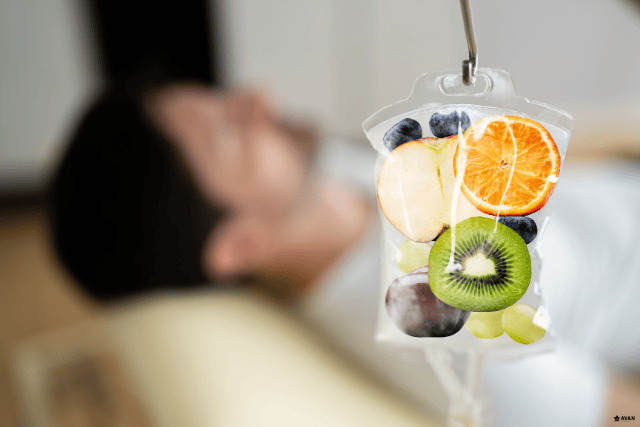
Mobile health clinics give organizations like yours a flexible way to bring real care to the people of rural Pennsylvania, where and when they need it most.
Want to learn more about mobile clinics in Pennsylvania?
You likely landed here because you realized healthcare in Pennsylvania is facing a big problem. People in rural areas are struggling to get the care they need. Maybe you’ve been considering mobile health clinics for a while and needed some more information about them.
Here’s a quick look at what you learned:
- Rural healthcare in Pennsylvania leaves too many people without help.
- Mobile clinics bring services like dental care, cancer screening, and OBGYN care right to small towns.
- Starting a mobile clinic program gives people a better chance to stay healthy close to home.
At AVAN Mobility, we work with healthcare organizations nationwide to design mobile medical units that fit each community’s real needs. Our team builds every clinic with one goal: to help more people get care, no matter where they live. We’re proud to work with leaders who want to bring health and hope back to their towns.
If you have questions, click the button below to talk to one of our mobility experts. We’re ready to help.
If you’re not ready to talk to a mobility expert yet, we have other helpful resources you can check out to learn more.
Start by checking out our article comparing mobile medical vans and RVs. This will give you some direction on which type of vehicle to go with.
After that, learn about some of the pitfalls to avoid when purchasing a mobile clinic.
